The Diabetes and Endocrinology (DE) Journal is dedicated to providing global, authoritative, and independent forum for high impact clinical research and opinion. This journal covers all visible and underlying facts about endocrinology, diabetes, metabolism, obesity, osteoporosis, and bone metabolism. Details and other specifics about thyroid, lipid and adrenal disorders are likewise reviewed and discussed.
The journal’s main objective is to publish contents that have a high-impact on medical practice, which can influence its better performance and outcome. Relatively, the scope of the journal is to deliver essential research, expert review, and candid commentaries that would provide the proper context and perspective on significant advances that shape these fields.
To properly ensure the clinical relevance and scientific merit of the diabetes and endocrinology journal, meticulous steps are taken to stringently edit its diverse contents and are peer reviewed on a regular basis.
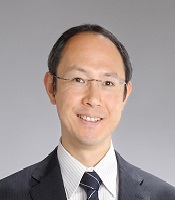
Professor Saisho received his medical degree in 1998 and his PhD degree in 2009, both from the Keio University School of Medicine in Tokyo. Before obtaining his current position as assistant professor, Dr. Saisho completed a three-year postdoctoral fellowship at the Larry L. Hillblom Islet Research Center at the University of California-Los Angeles’s David Geffen School of Medicine (Prof. Peter C. Butler). Dr. Saisho has served as chief resident in the Department of Internal Medicine at Shizuoka City Shimizu Hospital in Shizuoka and at Hiratsuka Municipal Hospital in Hiratsuka, Japan and was also a clinical fellow in the Division of Nephrology, Endocrinology and Metabolism at Keio University School of Medicine’s Department of Internal Medicine. Dr. Saisho is the author or coauthor of more than 60 publications. He is a member of the Fellows’ Association of the Japanese Society of Internal Medicine, the Fellows’ Association of the Japan Diabetes Society, the Japan Endocrine Society, and the Japan Atherosclerosis Society. Dr. Saisho’s area of interest is Diabetology, especially beta cell dysfunction in diabetes.
Yoshifumi Saisho, M.D., Ph.D.
Editor-in-Chief
Diabetes and Endocrinology
Division of Nephrology, Endocrinology & Metabolism
Department of Internal Medicine
Keio University School of Medicine, Tokyo, Japan
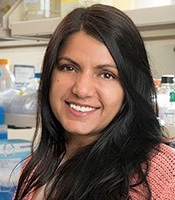
Dr. Sangeeta Dhawan received her Ph.D. in Molecular and Developmental Biology from Indian Institute of Science, Bangalore, India, where she studied the developmental biology. She did her postdoctoral training at Harvard Medical School and UCLA. Her training at UCLA focused on understanding the mechanisms of beta cell mass regulation. This work was supported by an advanced postdoctoral fellowship from JDRF. She is also a recipient of the Start-up Award and the Smookler Award for Diabetes Research from the Larry L. Hillblom Foundation, as well as a Transition Award from JDRF. She has served as a reviewer for journals such as Diabetes. Research in Dhawan laboratory focuses on understanding the epigenetic and cellular signaling pathways that regulate the formation, function, regeneration and survival of pancreatic beta cells during development, and under circumstances that warrant the repair/regeneration of beta cells.
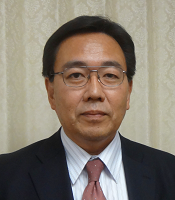
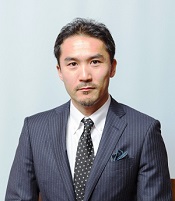
Dr. Tomoyasu Fukui graduated from Showa University School of Medicine in Japan in March 2000. He is currently an assistant professor at the Department of Diabetes, Metabolism and Endocrinology, Showa University Hospital, Japan. His main research theme is the elucidation of type 1 diabetes pathogenesis, especially in slowly progressive type 1 diabetes. Dr. Tomoyasu Fukui is a member of the Japan Diabetes Society, the Japan Endocrine Society, the Japanese Society of Internal Medicine, and Asian Association for the Study of Diabetes. Dr. Tomoyasu Fukui is an investigative research associate for the research of origins, diagnosis, pathology and treatment of type 1 diabetes in Japanese. He is a part-time researcher at Okinaka Memorial Institute for Medical Research since April 2015. His research focuses on the pathogenesis of type 1 diabetes with Professor Kobayashi Testsuro.
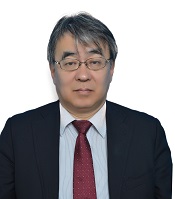
Dr. Yoshiaki Kido is a professor at Division of Metabolism and Disease, Department of Biophysics, Kobe University Graduate School of Health Sciences, Japan. Dr. Yoshiaki Kido earned a Ph.D. in molecular biology from Kobe University, Japan (Prof. Masato Kasuga), and did a postdoctoral fellow in the laboratory of Prof. Domenico Accili at NIH, MD, and Columbia University, NY, United States, to elucidate the molecular mechanisms of the onset of Diabetes. Then, Dr. Yoshiaki Kido worked on the project to clarify the regulation mechanism of pancreatic β cell mass as an assistant professor at Kobe University, Japan. Dr. Yoshiaki Kido was appointed professor of Kobe University Graduate School of Health Sciences, Japan from 2010. Currently, His main research theme is the elucidation of the regulation mechanism of pancreaticβ cell mass from aspect such as insulin signaling pathway, endoplasmic reticulum stress, disease susceptibility genes, epigenetics, drug action and so on. Dr. Yoshiaki Kido is a member of the Japan Diabetes Society, the Japan Endocrine Society, the Japanese Society of Internal Medicine, Japan Society of Metabolism and Clinical Nutrition, the Molecular Biology Society of Japan, American Diabetes Association, European Association for the Study of Diabetes, and Asian Association for the Study of Diabetes.

Dr. Taiyi Kuo received her PhD in Endocrinology and Metabolic Biology from University of California, Berkeley. She gained a solid background in studying transcriptional regulation by glucocorticoid receptor during her graduate studies at UC Berkeley. Dr. Taiyi Kuo co-authored 9 papers, including 4 first-author research articles, 2 review articles and a book chapter. She was a recipient of Tobacco-Related Disease Research Program Dissertation Award, and got Endocrine Society Meeting scholarship. Dr. Taiyi Kuo joined Prof. Domenico Accili’s laboratory at the Columbia University Diabetes Research Center to study pancreatic beta cell dedifferentiation and diabetes. Identification of circulating biomarker that correlates with beta cell function is essential to monitor the progression of diabetes. She is investigating the epigenomic landscape of stressed pancreatic beta cell lacking transcription factor FoxO1, as these beta cells show dedifferentiation and diabetic phenotype.

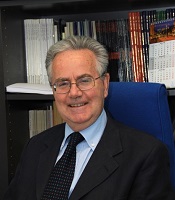
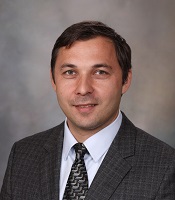
The work in the laboratory of Aleksey Matveyenko, Ph.D., is focused on understanding physiological and molecular mechanisms underlying the decline in beta cell function and mass in patients with diabetes. To accomplish these research goals, the laboratory uses an integrative approach ranging from cellular and molecular level studies in vitro to translational studies in vivo. The underlying goals of the research program are to develop novel therapeutic and preventive approaches to attenuate beta cell dysfunction and loss in patients with diabetes.

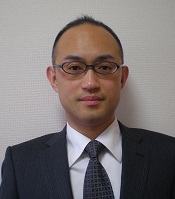
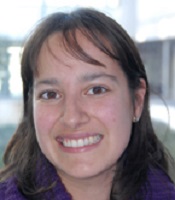
Dr. Safia Costes received her PhD degree in Endocrinology in 2007 from the University of Montpellier, France. Before obtaining her current position as a tenured researcher, Dr. Costes completed a five-year postdoctoral fellowship (2008-2012) followed by a two-year position as an assistant researcher (2012-2014) at the Larry L. Hillblom Islet Research Center at the University of California - Los Angeles’s David Geffen School of Medicine (Prof. Peter C. Butler). Since 2015, she has been recruited as a researcher by the National Institute of Health and Medical Research in Montpellier (France), focusing her research on the physiopathology of pancreatic beta-cells. Dr. Costes is the author or coauthor of more than 30 publications in different research areas such as diabetes, cell death, autophagy, signaling pathways. She is a member of the French Diabetes Society and the European Association for the Study of Diabetes. Dr. Costes’s main area of interest is pancreatic beta-cell dysfunction and apoptosis in type 2 diabetes.
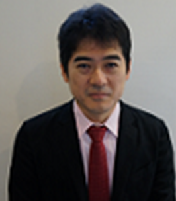
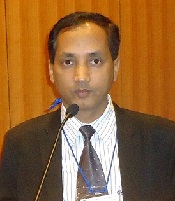
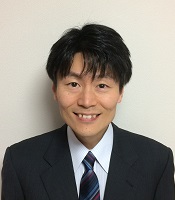
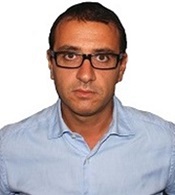
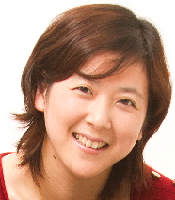
This quality improvement project highlights a critical shift in diabetes care. Acute care nurses report moderate competence, yet significant confidence gaps remain, particularly in insulin management and the use of new technologies under constant time pressure. These findings challenge the reliance on informal, nurse-led education and call for structured, multidisciplinary models with dedicated diabetes educators and digital tools designed for high-acuity settings. The study underscores the urgent need for targeted training to close these gaps, improve patient safety, and strengthen nurses’ roles as key protectors in chronic disease management.
A higher titer of IA-2Ab reflects a reduced pancreatic size in the patients with Type 1 diabetes (T1D), especially in those with the acute-onset form of the disease. The potential mechanisms underlying the reduced pancreatic size might differ between acute-onset T1D and slowly progressive insulin-dependent diabetes mellitus. The authors investigated the relationship between islet autoimmunity and pancreatic size in the Japanese patients with T1D.
The purpose of Diabetes and Endocrinology is to provide an opportunity to discuss among the researchers for a better understanding of diabetes and endocrinology. Open discussion is critical for the progress of medicine. We accept a broad range of manuscripts including original article, review, editorial, commentary, opinion and perspective regarding any aspects of diabetes and endocrinology, both basic as well as clinical studies.
A paradigm shift in type 2 diabetes may contribute to the reinforcement of new research questions and further improvement of diabetes care in clinical practice.
HbA1c levels decreased with increasing Hb levels, independent of age, sex, BMI, FPG, and smoking and alcohol habits in Japanese men and women without diabetes or anemia. There was an interaction between sex and hemoglobin in the effects on HbA1c. The interpretation of HbA1c values should be cautious in the screening of glucose intolerance.
The authors examined the appropriateness of an IIP, which was modified to fit the Japanese population, who were usually less obese and less insulin-resistant. This IIP maintained blood glucose levels within the target range in patients who underwent open-heart surgery as equally well as the previous empirical therapy. These findings confirm the efficiency and safety of our IIP with less burden in blood glucose management of Japanese patients.
A healthy lifestyle includes appropriate caloric intake, reduced intake of saturated fat and sugar-containing snacks and beverages, increased intake of vegetables and unsaturated fat, an increase in physical activity, and possibly avoiding even a small amount of alcohol intake.